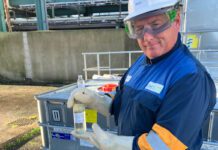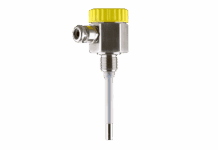
LIPP Systems UK has recently installed six new spiral seam tanks at a new bio-energy plant development in Wakefield, Yorkshire. These include three large 1,340m2 capacity anaerobic digestion tanks, an aeration tank, a buffer tank and finally a water processing tank. Chosen for their reliability, ease of construction and maximum safety – the new containers aim to produce enough biogas to power 3000 local homes. As a by-product the system will also create soil conditioner for agricultural use.
The Wakefield site has been designed to process green waste – household and commercial food and plant materials, with the capacity to receive and digest over 65,000 tons per year. The new tank installations form part of the South Kirby Anaerobic Digestion Plant, the green waste section of the Wakefield project. In its entirety, the site aims to recycle and reclaim 90 percent of the 230,000 tons of household waste it will receive per year.
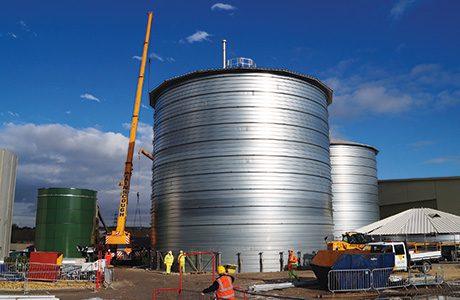
The main contractor for the Wakefield project specified Lipp System’s tanks for their performance and safety credentials. With an impressive reputation for health and safety, it was important for the main contractor to preserve these high standards for work at Wakefield. Lipp systems tanks were found to be very suitable, says the firm, as the build
process reduces the amount of time working at heights. All tanks are constructed from the ground upwards with apertures and equipment attached at close to ground level requiring comparably little work to be conducted at high elevation. Unlike a segmented tank, workers will not be on scaffolding or ropes fitting nuts and bolts.
A primary concern with the storage of any media is the integrity of the containment unit itself; escaping contents or odours present an issue that can require large outlays to correct. The Lipp Double Fold System however effectively guarantees total integrity. Steel bands are spiral formed and folded
twice over at the edges with a content appropriate stainless steel inner skin and galvanised steel outer skin sandwiching sealant between the two. As a result, no attachable surfaces are available for corrosion to form from the waste inside.
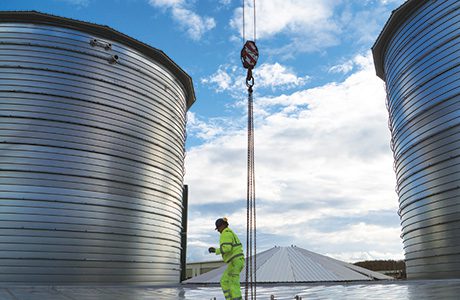
Construction is mostly automated, with steel bands being added underneath the roof of the container, raising the structure from the bottom up. This Spiral Seamed Technology enables a relatively straightforward and speedy construction process.
Close positioning of the tanks at Wakefield required construction operations within a relatively small space. Luckily, the erection of each tank is carried out with space saving as a primary concern. Construction is mostly automated, with steel bands being added underneath the roof of the container, raising the structure from the bottom up.
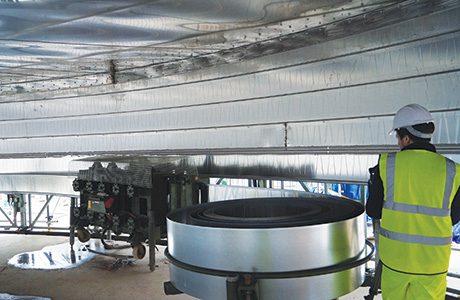
Further benefits of this building method include being able to vary container diameters with client specifications, at low cost. Structural rigidity was also paramount for the project. By combining different steel compounds with strong interconnected bonds, the containers have an extremely long operating life with no structural degradation. The tanks are also highly resistant to horizontal pressure.




